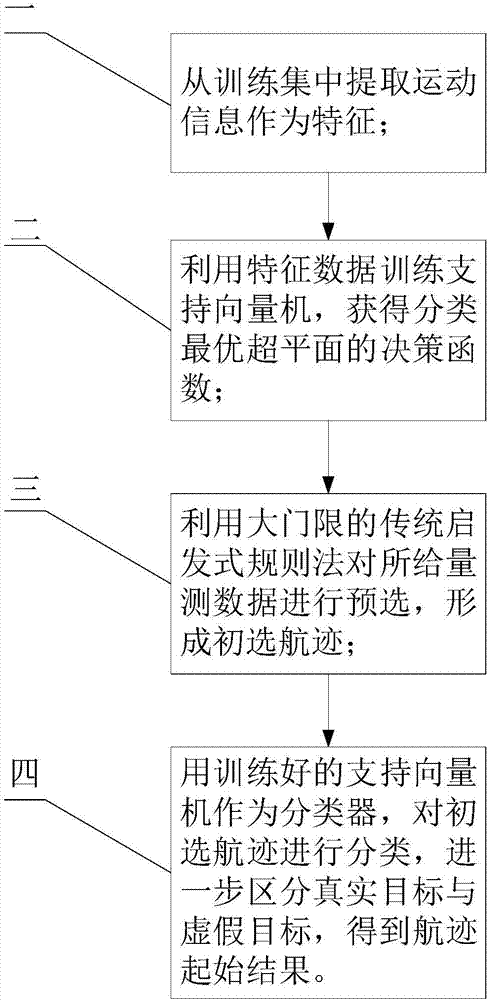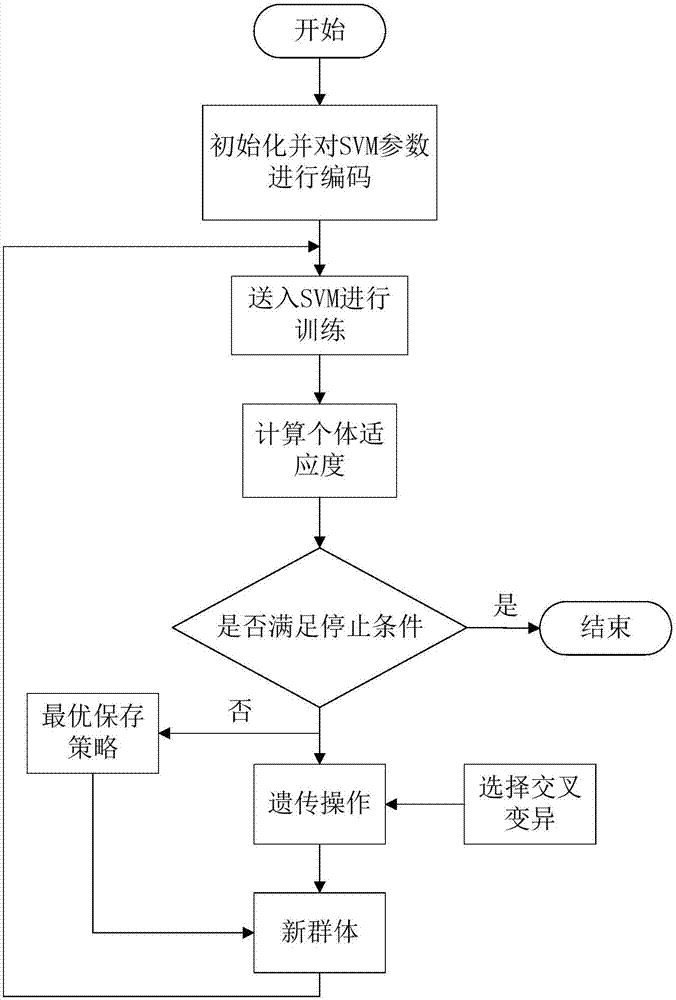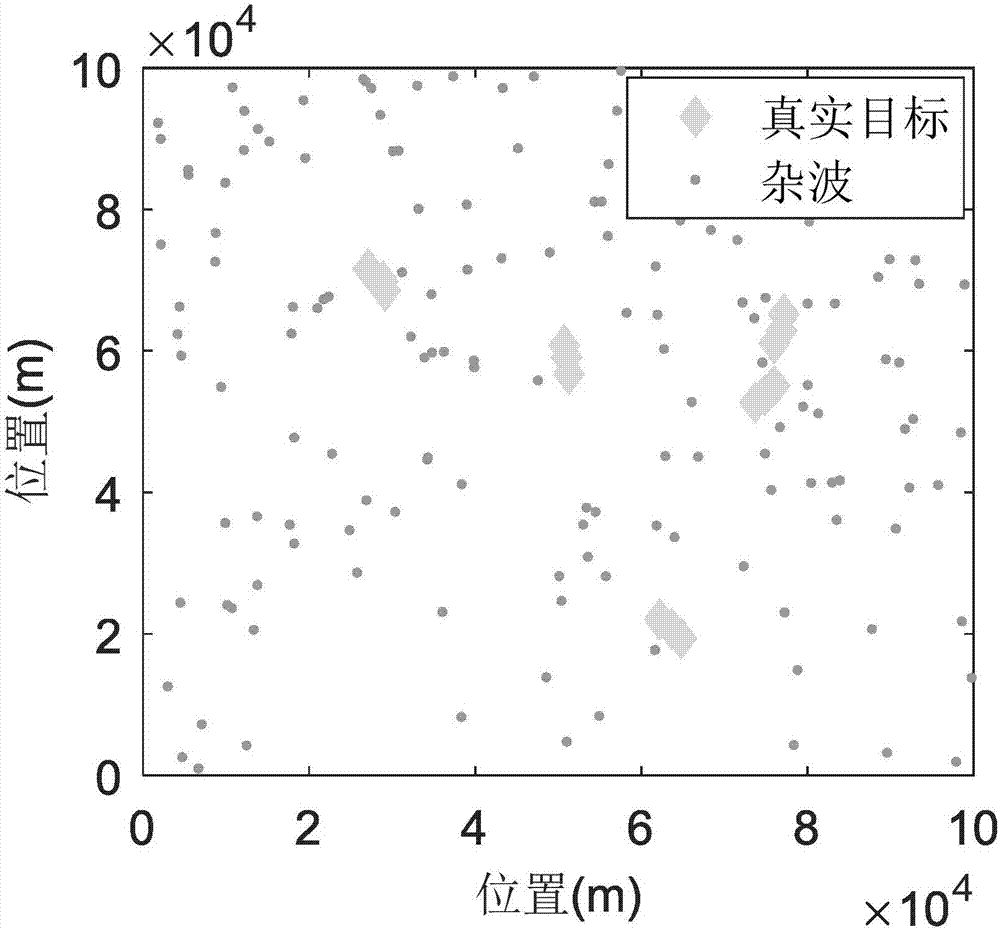Method for initiating track of radar target based on support vector machine
A support vector machine and radar target technology, which is applied in the field of track initiation based on support vector machine, can solve the problems of rough sequential processing method rules, large calculation amount of batch processing method, and large batches of measurement data, etc. It takes a long time to start, meets the real-time requirements, and has the effect of small amount of online calculation
- Summary
- Abstract
- Description
- Claims
- Application Information
AI Technical Summary
Problems solved by technology
Method used
Image
Examples
specific Embodiment approach 1
[0023] Specific implementation mode one: combine figure 1 Describe this embodiment, a kind of radar target track initiation method based on support vector machine of this embodiment, concrete process is:
[0024] Step 1: Extract the motion information of the radar detection target as the training sample feature;
[0025] Radar detection targets include real targets and false targets;
[0026] Step 2: Use the training sample features to train the support vector machine to obtain the decision function of the optimal hyperplane for radar target classification;
[0027] Step 3: Use the traditional heuristic rule method to pre-select the radar measurement data to be classified to form the primary track;
[0028] Step 4: Use the support vector machine trained in step 2 as a classifier to classify the primary track obtained in step 3, distinguish between real targets and false targets, and obtain the initial result of the track.
specific Embodiment approach 2
[0029] Specific embodiment two, the difference between this embodiment and specific embodiment one is: in the described step one, extract the motion information of the radar detection target as the training sample feature; the specific process is:
[0030] The radar detection target is taken as a training sample, the number of training samples is L, and the radar detection target includes real targets and false targets (some of which are from real targets, and some are from false targets); each training sample is composed of batches detected by radar signals Measurement combination, set the number of measurement combination points as N, expressed as the following formula:
[0031]
[0032] In the formula, MC k Indicates the kth radar target measurement combination, Indicates the position vector of the i-th batch of points in the k-th radar target measurement combination, 1≤i≤N; N and L are positive integers;
[0033] From the measurement combination MC k Extract the vel...
specific Embodiment approach 3
[0050]Specific embodiment three: the difference between this embodiment and specific embodiment one or two is: use training sample feature training support vector machine in described step 2, obtain the decision function of radar target classification optimal hyperplane; Concrete process is:
[0051] The principle of support vector machine training can be summarized as: find a hyperplane that satisfies the classification criteria, guarantees the accuracy requirements, and has the largest interval on both sides of the feature space. Margin maximization is the learning strategy of support vector machine, and the solution problem of hyperplane can be transformed into the solution of a convex quadratic programming problem.
[0052] Set a hyperplane w x+b=0, w is the normal vector, x is the feature vector, and b is the intercept;
[0053] if w·x k +b≥0, then judge x k The sample classification result is 1, otherwise it is -1, set the hyperplane w·x+b=0 to correctly classify all t...
PUM
 Login to View More
Login to View More Abstract
Description
Claims
Application Information
 Login to View More
Login to View More - R&D
- Intellectual Property
- Life Sciences
- Materials
- Tech Scout
- Unparalleled Data Quality
- Higher Quality Content
- 60% Fewer Hallucinations
Browse by: Latest US Patents, China's latest patents, Technical Efficacy Thesaurus, Application Domain, Technology Topic, Popular Technical Reports.
© 2025 PatSnap. All rights reserved.Legal|Privacy policy|Modern Slavery Act Transparency Statement|Sitemap|About US| Contact US: help@patsnap.com



